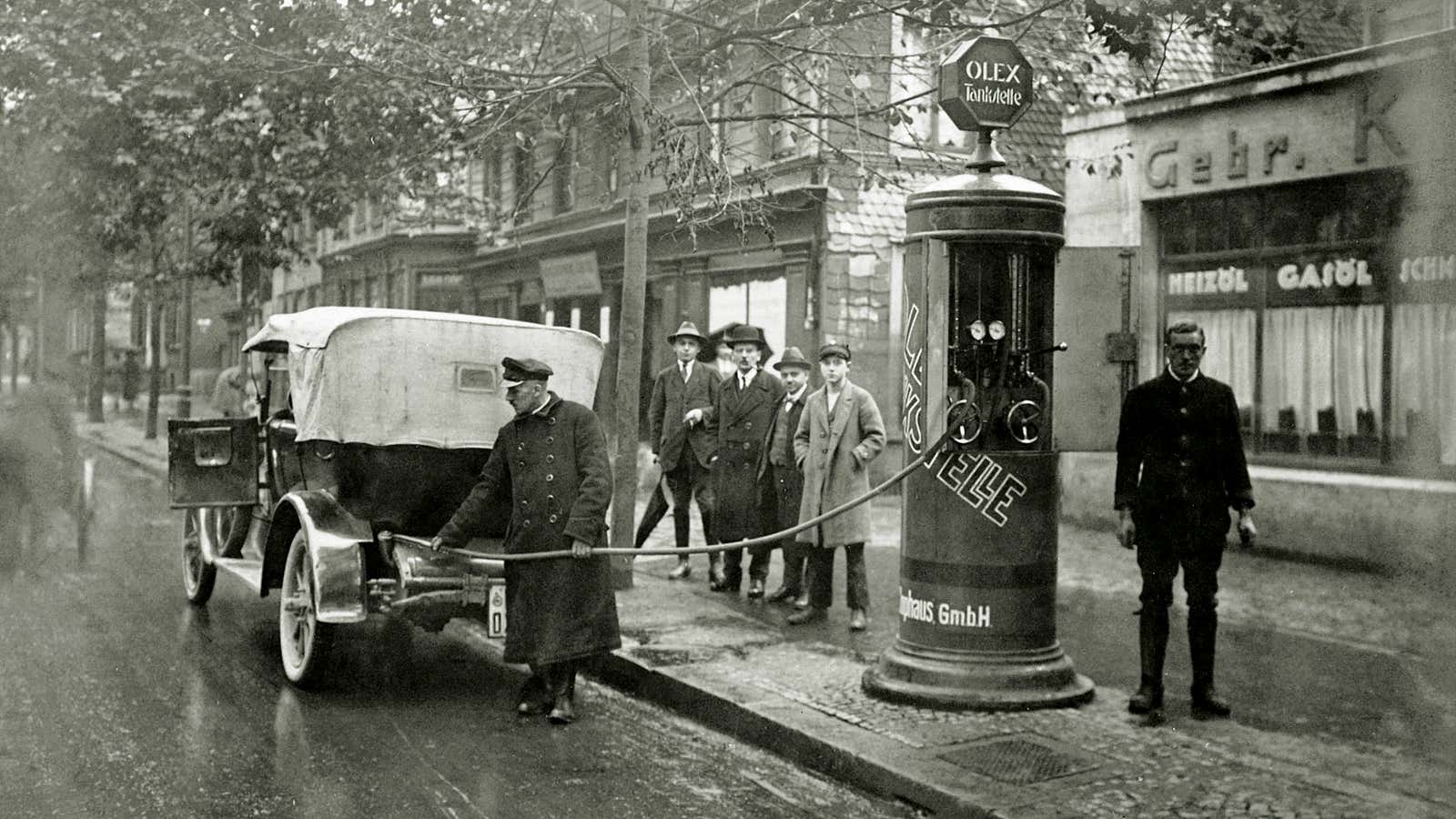Over the last five years, few large companies on the planet have been as existentially challenged as BP. Yet, the hits keep coming, often outsized and self-inflicted.
So it is with the latest news from the British oil company. A spike in gasoline prices in the US midwest can be attributed to a breakdown at a large BP refinery on Lake Michigan, possibly caused by a leak that began Aug. 8, and may go on for another month—the company told Quartz it may know by the end of the weekend when service at the refinery will be restored.
Oddly, the outage at the Whiting Refinery is also mostly to blame for the plummeting price of US and Canadian grades of oil over the last week. Look at this chart, which tracks the divergence of oil and Chicago gasoline prices:
The Whiting refinery is large (see below)—it can process 413,000 barrels of oil a day, sufficient, according to BP, for the daily needs of 430,000 cars and 22,000 commercial trucks.
The incident–especially the spike in gasoline prices–has generated more political trouble for BP, which has still not entirely recovered from the 2010 Gulf of Mexico oil spill: Jumping on an easy political winner, Michigan’s attorney general has publicly released a letter demanding that BP explain what’s going on at Whiting, and with gasoline prices.
Much has also been made of a hit to the price of Canadian crude, a primary feedstock into the refinery. The price has fallen to about $22 a barrel because drillers have had to find other refineries to process the oil; but this is overblown to say the least—the day before the outage, Canadian crude was already selling at a distressed $26.20 a barrel because of its comparatively low quality and its location.

In another strike at BP, an administrative judge ruled on Aug. 13 that traders at the company had manipulated the market for natural gas after Hurricane Ike in 2008. Judge Carmen Cintron said the evidence is that BP sought to depress the price of natural gas, and thus earn millions of dollars through bets on the market. Her decision now goes to the full Federal Energy Regulatory Commission (Ferc).
In 2013, Ferc proposed a $28 million fine against the company for the alleged manipulation. BP denies the allegation and says it will appeal. But one problem is a recording of a 2008 phone call between two BP traders discussing the strategy.
The twin developments come after years of problems at BP. Its record of deadly accidents and accusations of manipulation goes back a decade. Sometimes it’s just in the culture.
